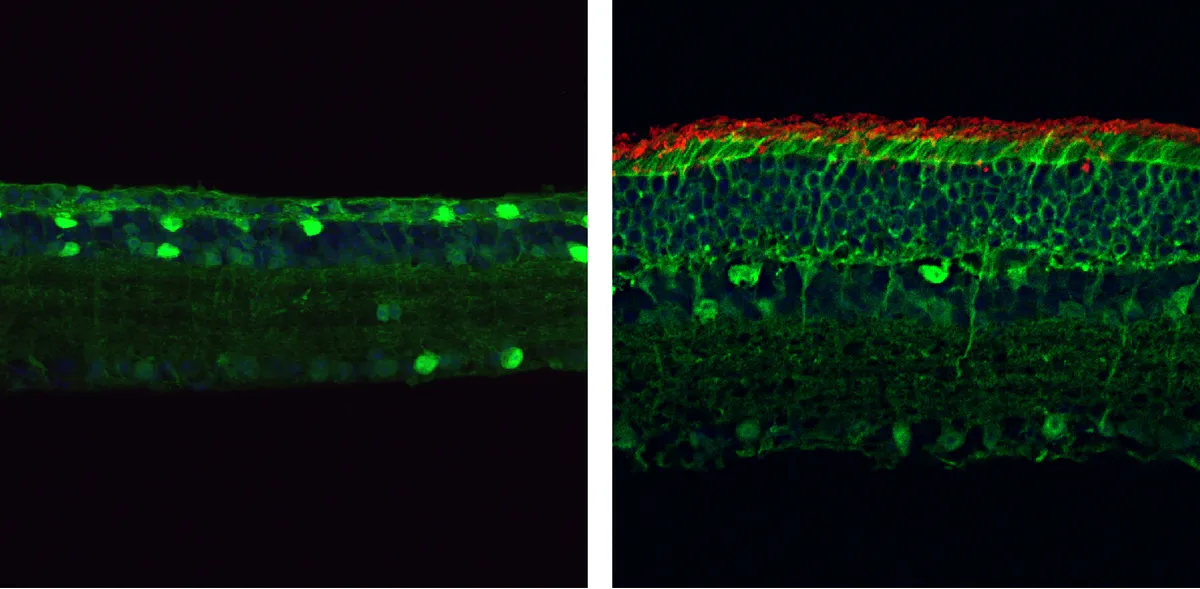Researchers in China have successfully restored the vision of mice with an inherited condition that leads to blindness.
The team, who are based at the Wuhan University of Science and Technology, used a newly developed CRISPR-based gene-editing technique to restore the sight of mice with retinitis pigmentosa.
The disease can be caused by mutations in more than 100 different genes. It causes photoreceptive cells in the retina to break down slowly over time, leading to vision loss and ultimately to blindness. It currently affects more than 1 in 4,000 people.
Gene-editing techniques have been used to restore vision in mice with genetic diseases, but only those that affect cells linked to the photoreceptors, not the photoreceptors themselves.

“The ability to edit the genome of neural retinal cells, particularly unhealthy or dying photoreceptors, would provide much more convincing evidence for the potential applications of these genome-editing tools in treating diseases such as retinitis pigmentosa,” said Kai Yao, a professor at the Wuhan University of Science and Technology.
The researchers targeted a mutation in the gene encoding an enzyme called PDE6β using a newly developed CRISPR-based system called PESpRY. This can be programmed to correct many different types of mutation by cutting out specific sequences of DNA at any point on the genome.
By targeting the mutant gene, the team were successfully able to restore the enzyme’s normal function and prevent the death of the mice’s photoreceptors. The mice treated retained their vision into old age and were able to navigate their way out of mazes almost as effectively as healthy mice.
Although the study was a success, more work needs to be done before the system can be trialled in humans, the researchers say.
Read more about CRISPR: